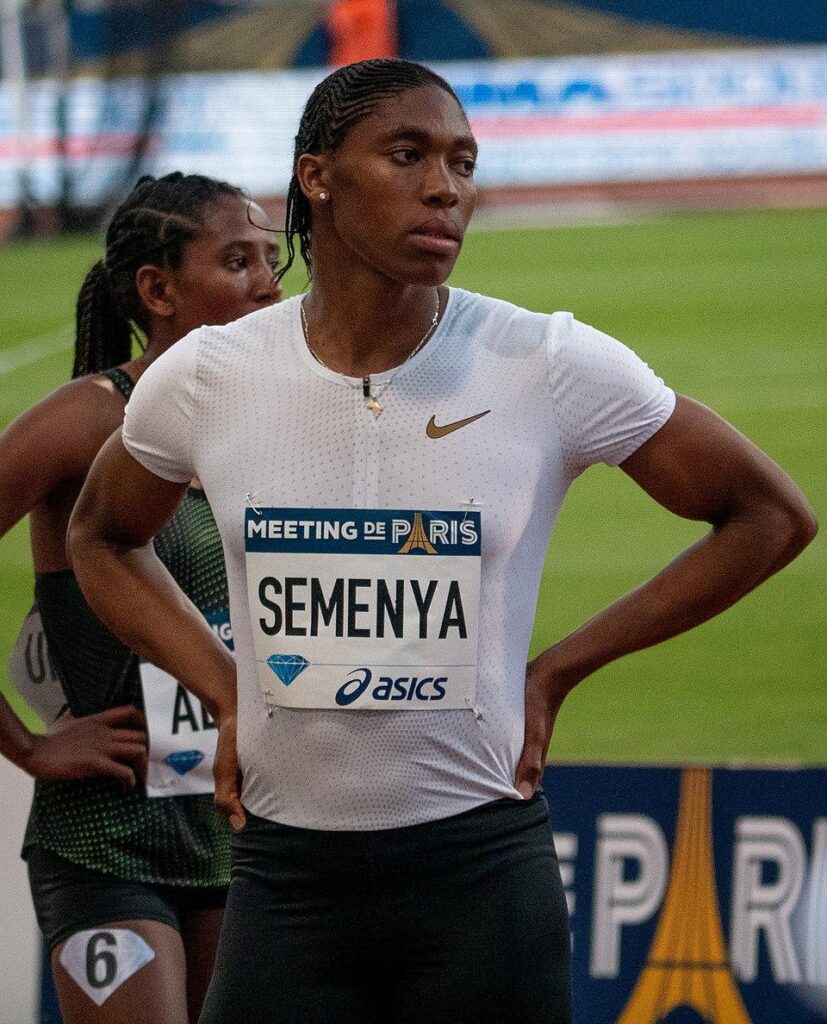South African middle-distance runner Caster Semenya has secured a significant legal victory as a court ruled in her favour, prompting her to call for a renewed focus on athletes’ rights in competitive sports. The ruling challenges longstanding regulations governing hyperandrogenism in female athletes, a contentious issue that has sparked widespread debate over fairness, inclusivity, and human rights in athletics. Semenya’s statement underscores the ongoing struggle of athletes subjected to gender-based scrutiny and marks a pivotal moment in the global conversation about equality and the governance of sport.
Caster Semenya demands prioritization of athlete rights in landmark court victory
Caster Semenya’s recent court triumph marks a significant milestone in the ongoing debate over fairness and inclusivity in athletics. The ruling not only invalidates restrictive regulations targeting Semenya specifically but also sets a precedent emphasizing the primacy of athlete rights over arbitrary gender norms. Semenya, a two-time Olympic champion, called on sporting bodies to reassess policies that undermine the dignity and integrity of competitors, urging them to prioritize human rights and scientific fairness in cohesion.
Advocates highlight several key demands emerging from this landmark victory:
- Clear protections against discrimination based on natural hormone levels
- Inclusion of athletes with diverse biological traits without forced medical interventions
- Greater transparency and fairness in eligibility criteria for competition
- Increased support for athletes navigating complex gender and sex classifications
| Aspect | Impact of Ruling |
|---|---|
| Policy Revision | Sports bodies urged to revise hormone-based eligibility rules |
| Legal Precedent | Sets groundwork for future athlete rights litigation |
| Athlete Welfare | Elevates mental, physical health considerations in competition |
| Public Discourse | Ignites global conversations about fairness and human rights |
Implications of court ruling on regulations for intersex and transgender athletes
Following the court’s decision in favor of Caster Semenya, there is a renewed scrutiny of existing regulations that govern the participation of intersex and transgender athletes in competitive sports. The ruling challenges policies that have been criticized for being invasive and discriminatory, putting athlete welfare and human rights at the forefront. Sports organizations are now compelled to re-examine their criteria for eligibility, balancing fairness in competition with respect for bodily autonomy and identity.
Key areas impacted by the ruling include:
- Reassessment of hormone level restrictions and their scientific basis
- Development of inclusive, evidence-based guidelines that respect diversity
- Enhanced protections against discrimination for intersex and transgender athletes
| Aspect | Previous Regulation | Potential Change Post-Ruling |
|---|---|---|
| Eligibility Criteria | Strict testosterone limits | More individualized assessment methods |
| Privacy | Mandatory medical disclosures | Stronger confidentiality protections |
| Discrimination Safeguards | Limited enforcement | Clear policies with legal backing |
Calls for inclusive policies to ensure fairness and dignity in competitive sports
The ruling in favor of Caster Semenya has reignited urgent discussions around the need for inclusive policies that uphold both fairness and dignity in the realm of competitive sports. Advocates emphasize that any regulations must move beyond rigid biological criteria, recognizing the complex interplay of genetics, identity, and athletic ability. The recent court decision serves as a pivotal moment, urging sports authorities to develop frameworks that respect diversity while maintaining competitive integrity.
Experts and athletes alike propose a multi-faceted approach, involving:
- Consultations with human rights organizations and medical professionals
- Creation of transparent guidelines that prioritize athletes’ well-being
- Implementation of educational programs addressing inclusivity in sport
- Regular reviews of policies to adapt to evolving scientific understanding
Such measures aim to foster an environment where every athlete can compete without fear of discrimination or stigmatization, ultimately redefining what true fairness means in modern athletics.
| Policy Focus | Main Objective |
|---|---|
| Human Rights Integration | Ensure protections against discrimination |
| Scientific Research | Base rules on evidence, not assumptions |
| Athlete Support | Provide mental & physical health resources |
| Regular Policy Review | Adapt to new insights and technologies |
Recommendations for sports governing bodies to implement rights-centered frameworks
Sports governing bodies must take definitive steps to place athletes’ rights at the forefront of policy development, ensuring that regulations are both fair and inclusive. This requires creating transparent, rights-centered frameworks that respect diversity in gender identity and biological characteristics without compromising competitive integrity. Key measures include:
- Engaging with human rights experts and athletes to co-create policies that uphold dignity and equality.
- Implementing rigorous, evidence-based standards that are regularly reviewed for fairness and scientific validity.
- Providing education and resources aimed at fostering an inclusive sporting culture that recognizes the complexity of gender and identity.
To support these initiatives, governing bodies should also adopt monitoring mechanisms to ensure accountability and responsiveness to athletes’ concerns. A clear emphasis on protecting athlete privacy and combating discrimination needs to be embedded in every level of governance. The table below outlines a simple framework for rights-centered sports governance that can guide organisations in reforming their policies:
| Focus Area | Key Actions |
|---|---|
| Policy Development | Inclusive consultations; scientific vetting; transparency |
| Education & Culture | Workshops; awareness campaigns; athlete support programs |
| Accountability | Independent oversight; grievance mechanisms; privacy safeguards |
In Summary
As Caster Semenya’s legal victory marks a significant moment in the ongoing debate over athletes’ rights and eligibility regulations, the focus now turns to governing bodies to prioritize fairness and inclusivity in sports. Advocates emphasize the need for policies that respect athletes’ dignity and personal freedoms, underscoring that the conversation surrounding gender and competition is far from over. This ruling not only reinforces Semenya’s fight but also signals a potential shift towards more equitable treatment for all competitors moving forward.





